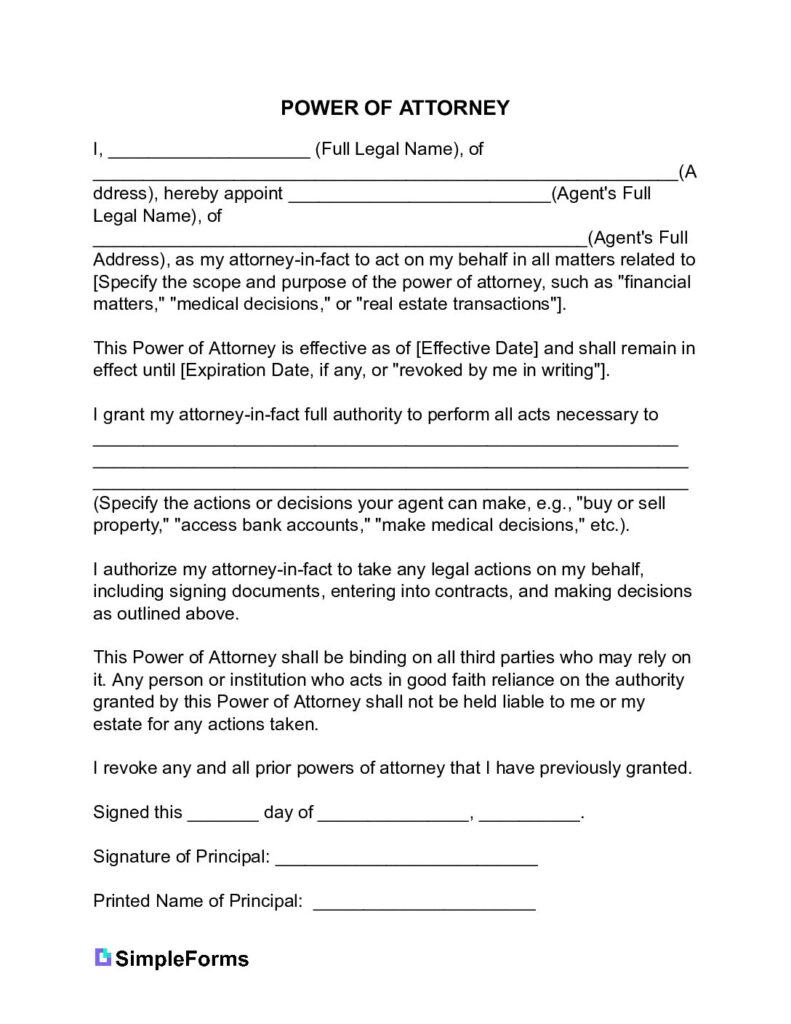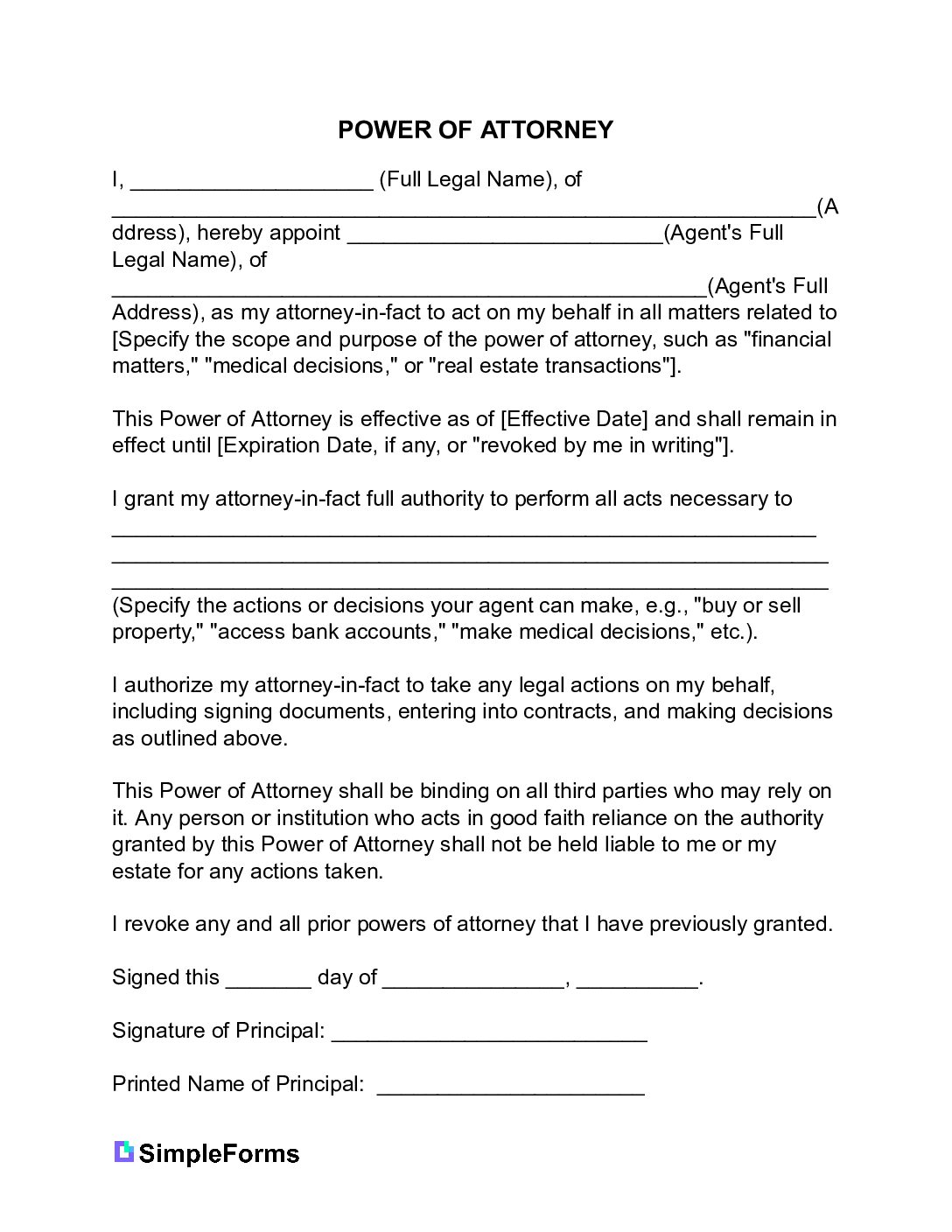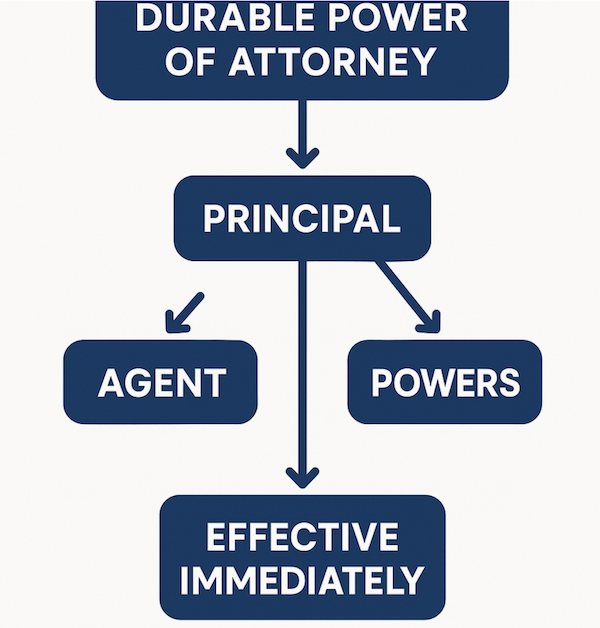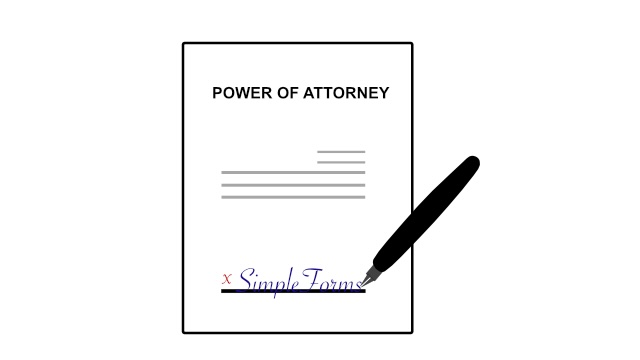A Durable Power of Attorney Form is a legal document that allows a person (called the agent’) to make decisions, both legally and medically, over the person whom created the document (known as the ‘principal’).
By State
- Alabama
- Alaska
- Arizona
- Arkansas
- California
- Colorado
- Connecticut
- Delaware
- Florida
- Georgia
- Hawaii
- Idaho
- Illinois
- Indiana
- Iowa
- Kansas
- Kentucky
- Louisiana
- Maine
- Maryland
- Massachusetts
- Michigan
- Minnesota
- Mississippi
- Missouri
- Montana
- Nebraska
- Nevada
- New Hampshire
- New Jersey
- New Mexico
- New York
- North Carolina
- North Dakota
- Ohio
- Oklahoma
- Oregon
- Pennsylvania
- Rhode Island
- South Carolina
- South Dakota
- Tennessee
- Texas
- Utah
- Vermont
- Virginia
- Washington
- West Virginia
- Wisconsin
- Wyoming
Durable Power of Attorney Form Types
- General – Gives the agent broad powers over the Principal.
- Limited – Typically for highly specific purposes and/or specific time frames.
- Durable (most common) – A power of attorney that consists of language that allows the agent to make decisions on behalf of the Principal if in an incapacitated state.
- Medical – Only allows the agent to make healthcare decisions on behalf of the Principal.
- Springing – A power of attorney that only comes into effect if a circumstance is triggered.
Where to Get a Durable Power of Attorney Form?
A durable power of attorney form can be obtained online or by a professional attorney that can customize the language in the form to the Principal’s specific needs.
Obtaining a Power of Attorney Online 📄
- To be able to choose from templates in multiple formats and customize your durable power of attorney form is more cost-friendly than hiring a professional.
- Easily fill out the template and download within minutes, especially if one is in an urgent matter.
Obtaining a Power of Attorney Through a Professional Lawyer
- For situations where the risks are high, inquiring a power of attorney through a professional is recommended.
- Estate planning usually incorporates an attorney.
What is the Definition of “Power of Attorney”?
Definition by the Uniform Power of Attorney Act:
“A “Power of attorney” is a document that gives an agent the authority to act on behalf of the principal.”
Source: Section 102(7)
What to include in a POA?
- Full legal name and mailing address
- Appointed Agent full legal name, mailing address, and relationship to you.
- Powers granted
- Effective date
- Signatures
How to write a Power of Attorney Form? ✍️
Follow these simple steps when writing a Durable Power of Attorney Form.
Step 1: Choose an Agent Wisely
Choosing someone to make decisions on your behalf should be someone who you can trust when you need them most.
Step 2: Level of Authority
Outline in writing exactly what you will give your agent powers to do on your behalf.
Step 3: Type of POA Form
Select the POA form that is based on your needs. The most common types are general and limited.
Step 4: Creating the Document
Download free POA template of your choice and fill in the blanks, sign, and get the form notarized.
Step 5: Final Step
Make copies of the signed POA form and give to all members included in the form.
Why use a Power of Attorney POA?
- Plan for the future by using a reliable Power of Attorney form template. You can download the PDF or Word document for free to provide peace of mind for yourself and your loved ones.
- This form covers decisions made on your behalf, estate planning, real estate, the agent or attorney in fact, types of powers of attorney (including durable, limited, and springing), family members, care power of attorney, bank accounts, health care power, and more.
- Use this form to grant power to act on your behalf in financial and real estate matters. It’s essential for ensuring that your wishes are carried out in the future.
Law Alert ⚖️
Uniform Power of Attorney Act – Statute § 102(7) Pg. 7
FAQs
- Who can override a power of attorney? The principal as long as they still have a ‘sound mind’.



